Comments last week by Minister for Agriculture Charlie McConalogue on the need to cap cow numbers is the clearest indication yet as to the Government’s plan for the sector. After years of championing growth, it now wants the handbrake applied.
Most were aware that the Teagasc MACC and the Ag Climatise roadmap were built on an assumption that the national herd would remain stable. But recommendations and assumptions within roadmaps are very different to a Minister for Agriculture telling farmers no more cows.
The minister, in defending his position at the IFA AGM last week, told farmers: “It will be difficult to achieve stable methane if dairy cow numbers continue to increase over the years ahead.”
In this week's edition, IFA president Tim Cullinan calls out a debate focusing on cattle numbers as “decidedly immature”.
At one level, farmers cannot simply turn a blind eye to the environmental challenges linked to continuous growth in the national herd – there are targets set and achieving these will be made all the more difficult if the national herd continues to rise.
Capping productivity
But equally, farmers cannot stand back and allow for the productive capacity and ultimately profitability of their farm to be capped while advances in new technology are ignored.
At the outset, the growth in the national cattle herd must be kept in context. Over the last 20 years, CSO data shows the national herd to have increased by just 4% – or less than 300,000 head.
To put this into context, over a similar period (2000-2018) the number of private cars on the road grew by 61% – or 810,000.
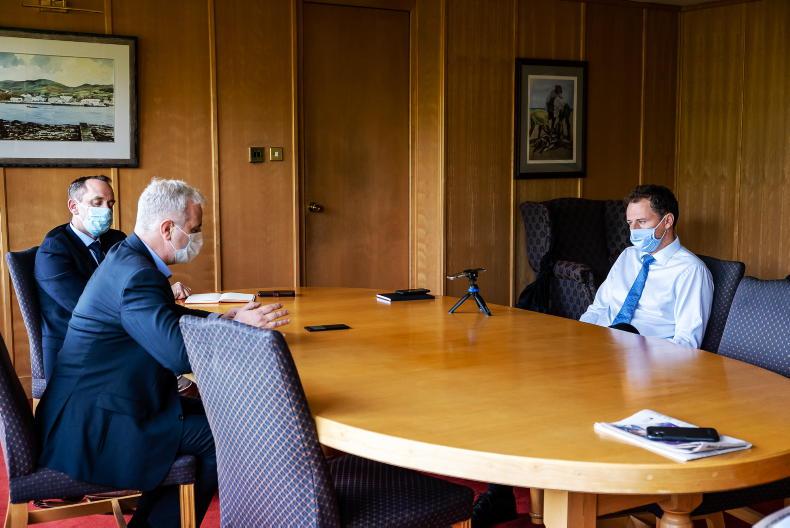
Minister for Agriculture Charlie McConalogue in conversation with Justin McCarthy and Pat O'Toole of the Irish Farmers Journal. \ Philip Doyle
Despite the swell in numbers, no Government minister has yet to or is ever likely to propose a cap on the number of cars per household.
Instead, the focus has been on introducing measures to reduce emissions from each car – either through cleaner engines or a move towards hybrid or electric.
Progress on the latter two options has been slow with 80% of cars sold in 2020 either diesel or petrol while just 4.5% were electric.
So, why such a different approach to agriculture – a sector that has shown a strong commitment to introducing new technologies and work practices to reduce emissions and environmental impact?
Exploiting emerging technologies
Rather than Government attention focusing on the need to cap the national cattle herd, surely the policy focus should be on how to exploit the new emerging technologies that are shown to reduce methane emissions from livestock.
The recent advances in feed additives cannot be ignored by a country where 70% of the agricultural sector is dependent on bovines. While at early stage development in Ireland, progress globally has been gaining pace.
This week, we saw Fonterra announce an agreement with DMS to explore the potential of the company’s feed additive Bovaer, shown to reduce methane emissions by 30%.
The national herd has increased by less than 300,000 head ... the number of private cars on the road grew by 810,000
Meanwhile, in Australia, lab tests and early field trials show asparagopsis seaweed, at an inclusion rate of just 0.2%, to reduce methane by 98% – a secondary environmental dividend being that the crop removes nitrogen when growing in the water.
Yes, there are specific challenges in applying this technology to grass-based systems but the development of slow release pellets, boluses and pasture application all offer solutions.
Ongoing advances in breeding technologies offer similar potential in terms feed efficiency, fertility and yield. We have seen the impact of targeted policy measures such as the BDGP deliver real gains in this regard, while the EBI has been turning the dial in the right direction for many years.
The introduction of a slaughter premium based on age plus more focus on the DBI would deliver further dividends.
The minister must also be aware of the unintended consequences of adopting such a rudimentary approach. Capping cow numbers risks shifting the focus onto driving output per cow.
In the last decade, cow numbers in Northern Ireland increased by 10% but milk output over the period increased by almost 30%, fuelled in part by higher input systems.
The end result is a sector now facing real challenges in terms of water quality and ammonia emissions. A cap on numbers will ultimately shift Irish dairying down a less profitable and less environmentally sustainable route.
Warning
Arguing with the minister’s approach to solving the problem does not mean it goes away.
A warning has been sent: increasing cow numbers while the environmental footprint of the sector expands is not going to be accepted. If it is ignored and targets are not achieved, the Government’s solution will be to cap the herd.
If the growth opportunity is to be retained, the sector must demonstrate an ability to do so while reducing its environmental impact. We should not underestimate the challenge.
It will require the role of all existing and new technologies to be maximised and for the environmental dividend to be fully recognised by Government. At this point, the minister and his department should be focused on how policy can support this rather than taking the easy way out.
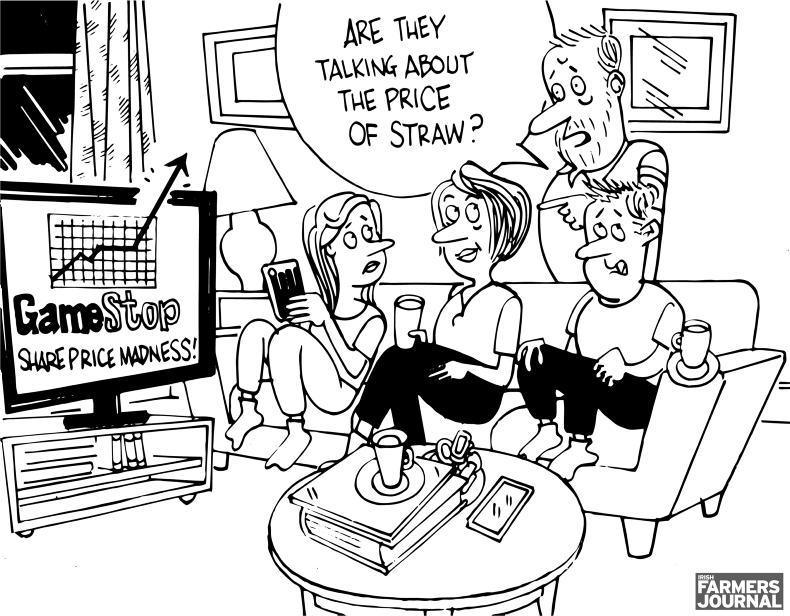
\ Ger Crowley
Brexit: Irish farmers forgotten in final deal
As the dust settles and intentions of the British government become clear, the extent to which the EU-UK trade agreement has failed to protect Irish farms is now obvious.
Allowing the UK to trade away its internal food market while retaining unrestricted access to the EU market for British produce shows the extent to which the interests of Irish farmers were either not heard or ignored in the final negotiations.
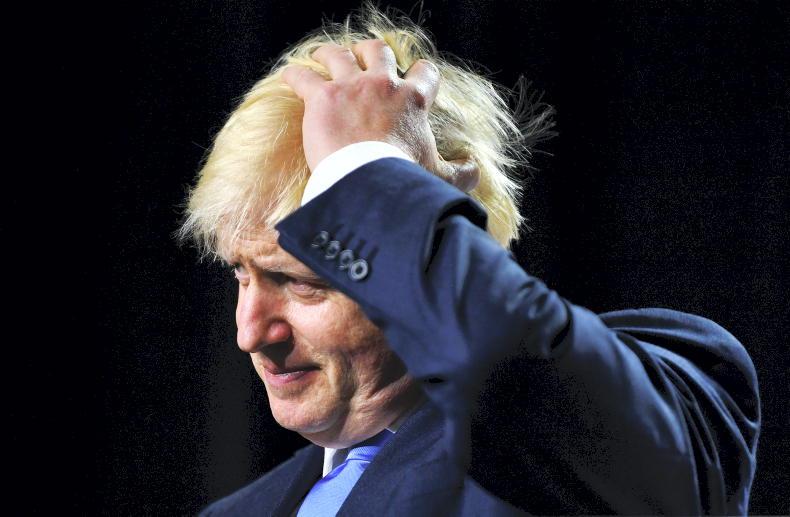
UK prime minister Boris Johnson.
The application by the UK this week to join the 11 countries around the Pacific Ocean in the Comprehensive and Progressive Agreement for Trans-Pacific Partnership (CPTPP) is the start of a process that will open the market in Britain to some of the lowest-cost producers of dairy, beef and sheepmeat in the world.
Irish dairy is globally competitive but recent success for sheepmeat owes much to an undersupplied market.
This would be reversed by increased UK imports supplying a domestic market while British produced sheepmeat continued to access the EU market. The same applies to beef.
This won’t happen immediately so there is time to prepare but we cannot wait until there is a problem.
As Phelim O’Neill reports, Irish farmers over the past two years have endured the worst beef prices in the past decade.
The Government has access to meaningful resources through the Brexit Adjustment Reserve and EU regeneration programme. It is vital that part of these resources are dedicated to restructuring agriculture in a way that reflects the reality of the world into which our beef and sheepmeat sectors are heading.
Livestock: moving from reactionary to active lobbying
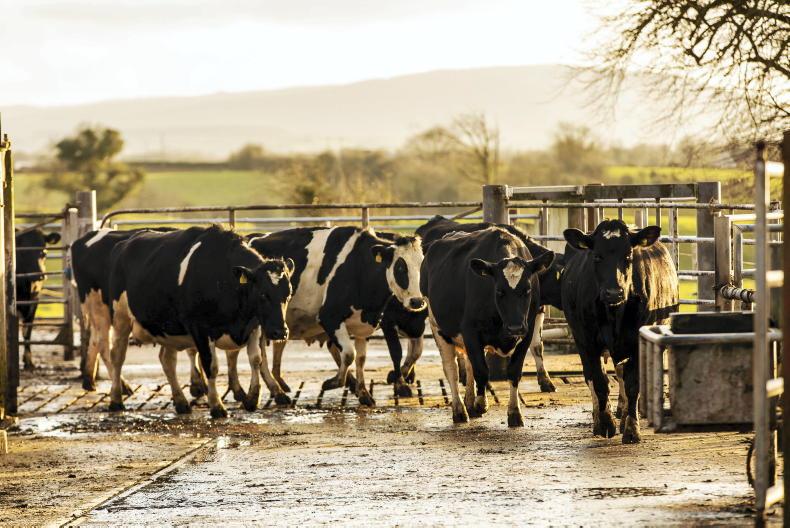
The comments from Minister for Agriculture Charlie McConalogue on the need to cap cow numbers appeared to come as a shock. It shouldn’t be the case – the direction of travel has been known for some time.
Teagasc has made no secret of the fact that the calculations within the MACC – its blueprint to reduce emissions from the sector – were based on constant cow numbers.
What the minister’s comments expose is the pace at which recommendations within roadmaps and blueprints can become part of Government policy.
In such an environment, reactionary lobbying has limited influence. Direct and early engagement in shaping the construction of these roadmaps or blueprints is where attention needs to be focused.
We must learn from this in the context of ensuring farmers are central to the ongoing development of the national strategic plan for the sector – not simply sitting on the sidelines waiting to react to its content.
The same principle applies to the €1bn Brexit fund. Farmers must come forward with a policy as to how this should be invested to prepare for the inevitable impact of Brexit.
COVID-19 vaccines: European Commission’s diplomatic car crash
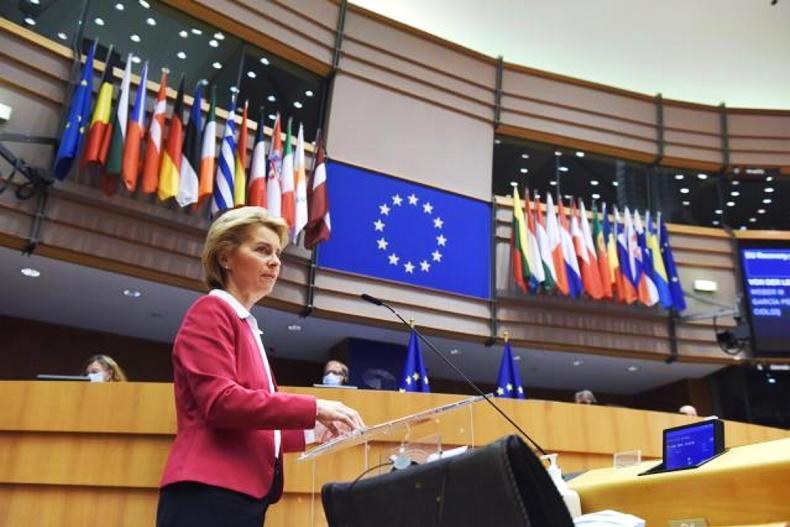
European Commission president Ursula von der Leyen.
Given the political sensitivities, the EU treated Northern Ireland with kid gloves in Brexit negotiations.
Protecting peace and avoiding a hard border on the island was always core. The approach taken by the European Commission towards COVID-19 vaccines on Friday gave the clear impression of a hard border being reintroduced.
The lack of proper consultation exposed either recklessness or incompetence. Neither are acceptable given the damage that has been done.
A move by the EU to grant flexibility on trade across the Irish Sea to allow supply chains adjust would undoubtedly take some heat out of the political fire it has helped fuel.
Comments last week by Minister for Agriculture Charlie McConalogue on the need to cap cow numbers is the clearest indication yet as to the Government’s plan for the sector. After years of championing growth, it now wants the handbrake applied.
Most were aware that the Teagasc MACC and the Ag Climatise roadmap were built on an assumption that the national herd would remain stable. But recommendations and assumptions within roadmaps are very different to a Minister for Agriculture telling farmers no more cows.
The minister, in defending his position at the IFA AGM last week, told farmers: “It will be difficult to achieve stable methane if dairy cow numbers continue to increase over the years ahead.”
In this week's edition, IFA president Tim Cullinan calls out a debate focusing on cattle numbers as “decidedly immature”.
At one level, farmers cannot simply turn a blind eye to the environmental challenges linked to continuous growth in the national herd – there are targets set and achieving these will be made all the more difficult if the national herd continues to rise.
Capping productivity
But equally, farmers cannot stand back and allow for the productive capacity and ultimately profitability of their farm to be capped while advances in new technology are ignored.
At the outset, the growth in the national cattle herd must be kept in context. Over the last 20 years, CSO data shows the national herd to have increased by just 4% – or less than 300,000 head.
To put this into context, over a similar period (2000-2018) the number of private cars on the road grew by 61% – or 810,000.

Minister for Agriculture Charlie McConalogue in conversation with Justin McCarthy and Pat O'Toole of the Irish Farmers Journal. \ Philip Doyle
Despite the swell in numbers, no Government minister has yet to or is ever likely to propose a cap on the number of cars per household.
Instead, the focus has been on introducing measures to reduce emissions from each car – either through cleaner engines or a move towards hybrid or electric.
Progress on the latter two options has been slow with 80% of cars sold in 2020 either diesel or petrol while just 4.5% were electric.
So, why such a different approach to agriculture – a sector that has shown a strong commitment to introducing new technologies and work practices to reduce emissions and environmental impact?
Exploiting emerging technologies
Rather than Government attention focusing on the need to cap the national cattle herd, surely the policy focus should be on how to exploit the new emerging technologies that are shown to reduce methane emissions from livestock.
The recent advances in feed additives cannot be ignored by a country where 70% of the agricultural sector is dependent on bovines. While at early stage development in Ireland, progress globally has been gaining pace.
This week, we saw Fonterra announce an agreement with DMS to explore the potential of the company’s feed additive Bovaer, shown to reduce methane emissions by 30%.
The national herd has increased by less than 300,000 head ... the number of private cars on the road grew by 810,000
Meanwhile, in Australia, lab tests and early field trials show asparagopsis seaweed, at an inclusion rate of just 0.2%, to reduce methane by 98% – a secondary environmental dividend being that the crop removes nitrogen when growing in the water.
Yes, there are specific challenges in applying this technology to grass-based systems but the development of slow release pellets, boluses and pasture application all offer solutions.
Ongoing advances in breeding technologies offer similar potential in terms feed efficiency, fertility and yield. We have seen the impact of targeted policy measures such as the BDGP deliver real gains in this regard, while the EBI has been turning the dial in the right direction for many years.
The introduction of a slaughter premium based on age plus more focus on the DBI would deliver further dividends.
The minister must also be aware of the unintended consequences of adopting such a rudimentary approach. Capping cow numbers risks shifting the focus onto driving output per cow.
In the last decade, cow numbers in Northern Ireland increased by 10% but milk output over the period increased by almost 30%, fuelled in part by higher input systems.
The end result is a sector now facing real challenges in terms of water quality and ammonia emissions. A cap on numbers will ultimately shift Irish dairying down a less profitable and less environmentally sustainable route.
Warning
Arguing with the minister’s approach to solving the problem does not mean it goes away.
A warning has been sent: increasing cow numbers while the environmental footprint of the sector expands is not going to be accepted. If it is ignored and targets are not achieved, the Government’s solution will be to cap the herd.
If the growth opportunity is to be retained, the sector must demonstrate an ability to do so while reducing its environmental impact. We should not underestimate the challenge.
It will require the role of all existing and new technologies to be maximised and for the environmental dividend to be fully recognised by Government. At this point, the minister and his department should be focused on how policy can support this rather than taking the easy way out.

\ Ger Crowley
Brexit: Irish farmers forgotten in final deal
As the dust settles and intentions of the British government become clear, the extent to which the EU-UK trade agreement has failed to protect Irish farms is now obvious.
Allowing the UK to trade away its internal food market while retaining unrestricted access to the EU market for British produce shows the extent to which the interests of Irish farmers were either not heard or ignored in the final negotiations.

UK prime minister Boris Johnson.
The application by the UK this week to join the 11 countries around the Pacific Ocean in the Comprehensive and Progressive Agreement for Trans-Pacific Partnership (CPTPP) is the start of a process that will open the market in Britain to some of the lowest-cost producers of dairy, beef and sheepmeat in the world.
Irish dairy is globally competitive but recent success for sheepmeat owes much to an undersupplied market.
This would be reversed by increased UK imports supplying a domestic market while British produced sheepmeat continued to access the EU market. The same applies to beef.
This won’t happen immediately so there is time to prepare but we cannot wait until there is a problem.
As Phelim O’Neill reports, Irish farmers over the past two years have endured the worst beef prices in the past decade.
The Government has access to meaningful resources through the Brexit Adjustment Reserve and EU regeneration programme. It is vital that part of these resources are dedicated to restructuring agriculture in a way that reflects the reality of the world into which our beef and sheepmeat sectors are heading.
Livestock: moving from reactionary to active lobbying

The comments from Minister for Agriculture Charlie McConalogue on the need to cap cow numbers appeared to come as a shock. It shouldn’t be the case – the direction of travel has been known for some time.
Teagasc has made no secret of the fact that the calculations within the MACC – its blueprint to reduce emissions from the sector – were based on constant cow numbers.
What the minister’s comments expose is the pace at which recommendations within roadmaps and blueprints can become part of Government policy.
In such an environment, reactionary lobbying has limited influence. Direct and early engagement in shaping the construction of these roadmaps or blueprints is where attention needs to be focused.
We must learn from this in the context of ensuring farmers are central to the ongoing development of the national strategic plan for the sector – not simply sitting on the sidelines waiting to react to its content.
The same principle applies to the €1bn Brexit fund. Farmers must come forward with a policy as to how this should be invested to prepare for the inevitable impact of Brexit.
COVID-19 vaccines: European Commission’s diplomatic car crash

European Commission president Ursula von der Leyen.
Given the political sensitivities, the EU treated Northern Ireland with kid gloves in Brexit negotiations.
Protecting peace and avoiding a hard border on the island was always core. The approach taken by the European Commission towards COVID-19 vaccines on Friday gave the clear impression of a hard border being reintroduced.
The lack of proper consultation exposed either recklessness or incompetence. Neither are acceptable given the damage that has been done.
A move by the EU to grant flexibility on trade across the Irish Sea to allow supply chains adjust would undoubtedly take some heat out of the political fire it has helped fuel.








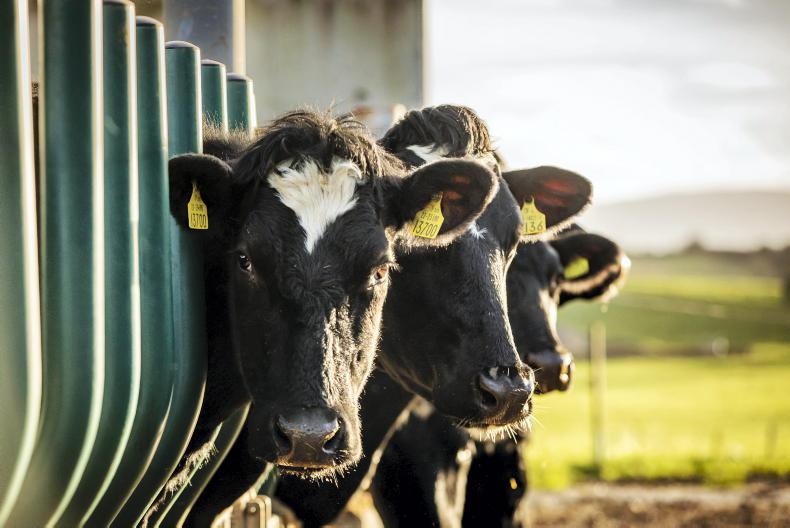

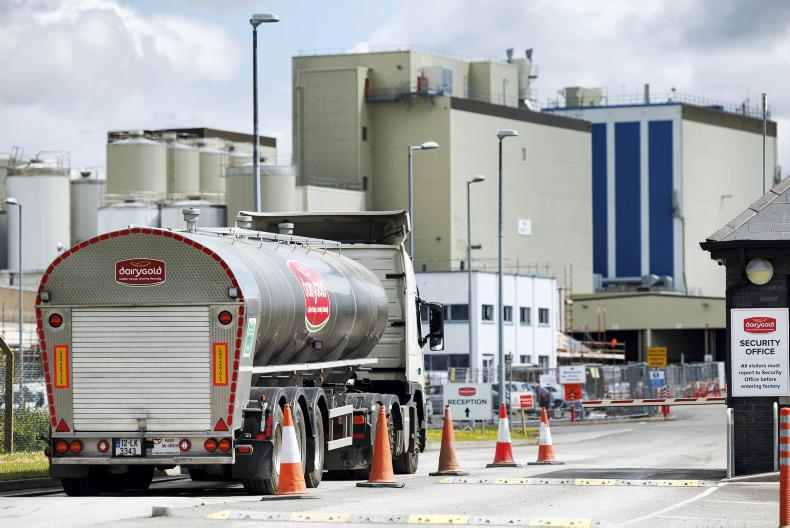
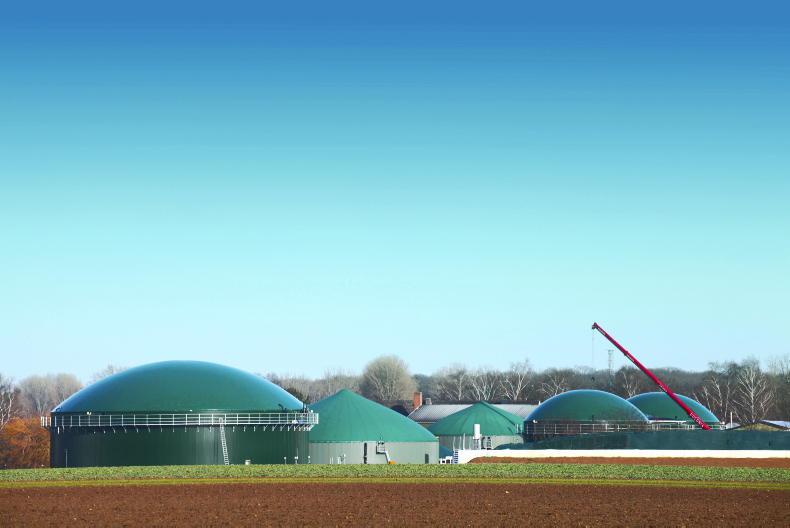
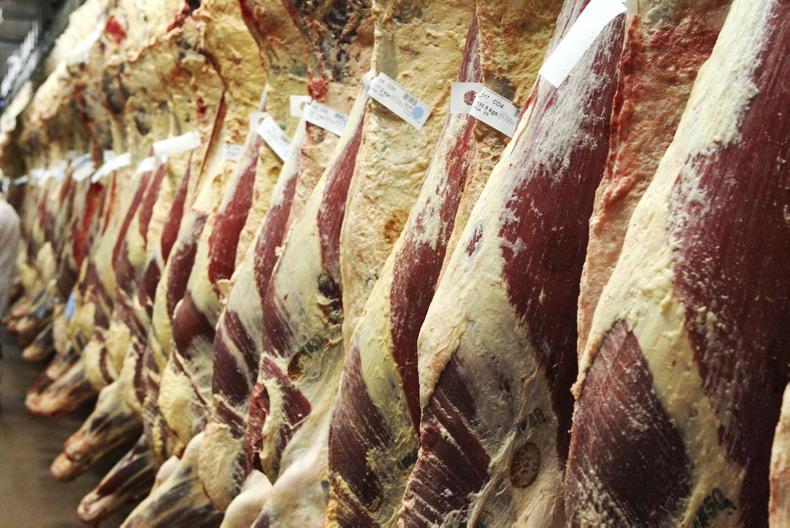
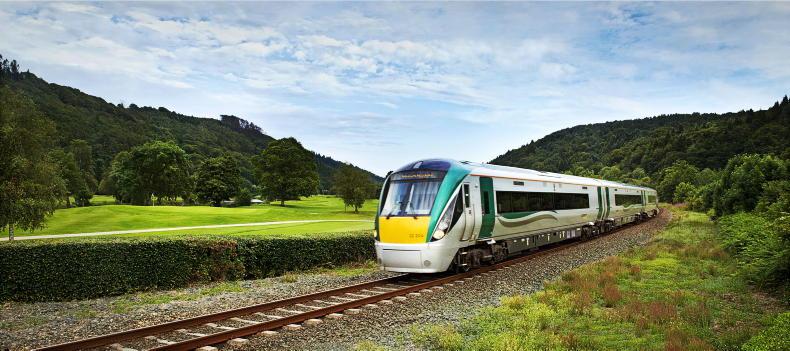
SHARING OPTIONS